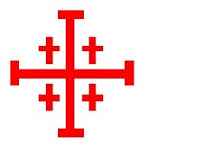
You are probably aware of the parable of the Wheat
and Tares. If not you can find it in Matthew 13:24-30. Darnel [Tares in the
Gospel of Matthew] appears almost the same as wheat when it is young, but as
both mature the darnel stands straight up, and the heavy ears of wheat bend
over. This makes it easier to pull out the darnel before you harvest the wheat.
The darnel is also mildly poisonous and hallucinogenic.
Jesus extends the
harvest teaching of the Old Testament in his parable about the wheat and the
tares. When the harvest is not yet ready
the darnel looks much like the wheat, but when the harvest is ripe the mature
wheat bows its head, but the darnel stands straight up and says look at
me.
When you plant a new church you cannot tell whether
the people who come are wheat or tares. Most will be wheat, some will be tares;
but that presents a problem. Tares are poisonous and can cause divisiveness in
the Church. If you have a long
established congregation without doubt you have wheat and tares in the
congregation.
Bonhoeffer tells us that “The old world cannot take
pleasure in the Church because the Church speaks of its end as though it had
already happened--as though the world had already been judged. The old world does not like being regarded as
dead. The Church has never been
surprised at this, nor is it surprised by the fact that again and again men
come to it who think the thoughts of the old world--and who is there entirely
free from them? But the Church is
naturally in tumult when these children of the world that has passed away lay
claim to the Church, to the new, for themselves. They want the new and only know the old. And thus they deny Christ the Lord.” [Dietrich Bonhoeffer, Creation and Fall,
translated by John C. Fletcher. (New
York: Macmillan, 1959), 11].
The practical problem that we have in each congregation
is that Church members often hear only one side of Jesus’ teaching, “Judge not,”
and not the other side; if the offending person refuses to listen to you, “let
him be to you as a Gentile and a tax collector” [Matthew 18:17] Sometimes congregations, out of misguided love, give the divisive person a position of leadership in committees, small groups, and on the vestry. In one church the divisive people all sat in one row, and before the service the organist was heard softly singing, "When the Row is called up yonder I'll be glad."
St. Paul gives the following instruction, “I appeal
to you, brothers, to watch out for those who cause divisions and create
obstacles contrary to the doctrine that you have been taught; avoid them” [Romans
16:17, and again, “As for a person who stirs up division, after warning him
once and then twice, have nothing more to do with him” [Titus 3:10].



No comments:
Post a Comment